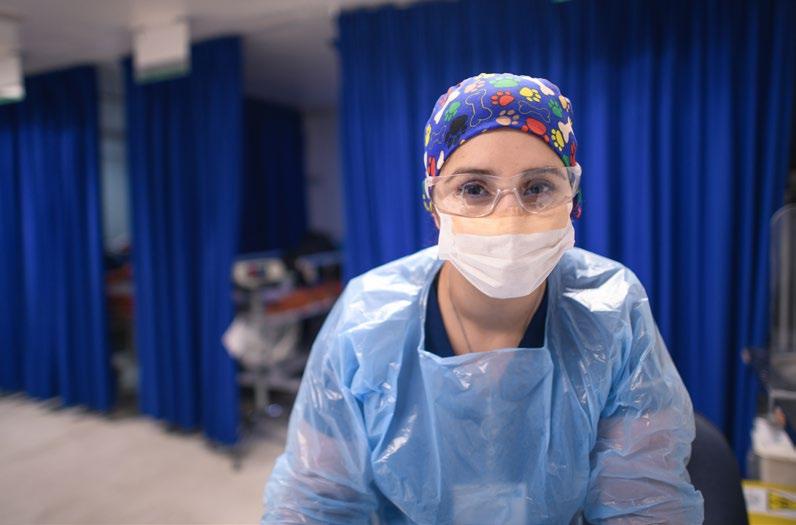
1 minute read
Educating, guiding and accompanying our patients
angélica rodríguez Nurse IntegraMédica Outpatients Clinics
SANTIAGO — CHILE
I am part of a specialised call team set up to triage positive patients and follow them up.
The main problem is older adults, who are more likely to get seriously ill. They also get very scared, and we need to help and calm them on the phone. We do a complete health assessment so we can pinpoint the problem. We have a set of questions designed to get the most information possible in the shortest period of time. If the person has respiratory symptoms and difficulty breathing, we make them an urgent appointment to come in.
When we have told a positive patient to isolate, most of them understand. But sometimes I would call a patient and they would be out and about when they answered. Then I would say to them: Even though you feel fine, it doesn’t mean you might not pass it on to others.
I am also responsible for managing home visits, video appointments or support with sick leave paperwork. On top of the illness, many of the people who needed sick leave were worried about losing their jobs.
I only graduated a year ago, so having to work in the pandemic has been a real challenge, because people are
really suffering. June was the toughest month, emotionally. I would call some of my follow-up patients and find out they had died. I imagined us getting to the point of piling up bodies and not being able to give people proper funerals. I would have hated that. But thankfully it didn’t come to that.
Nurses are very close to patients. In our call team we have a complete protocol, a kind of Covid guide, written in very accessible language so people can understand it.
I think that nurses have been very important at this time, not just in primary care but also in our roles as educators and in health promotion. �









